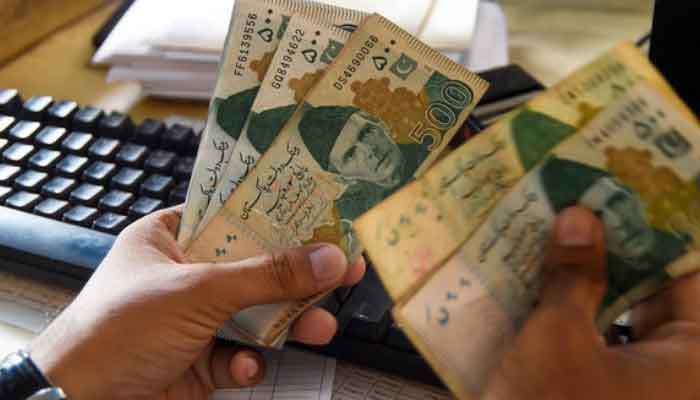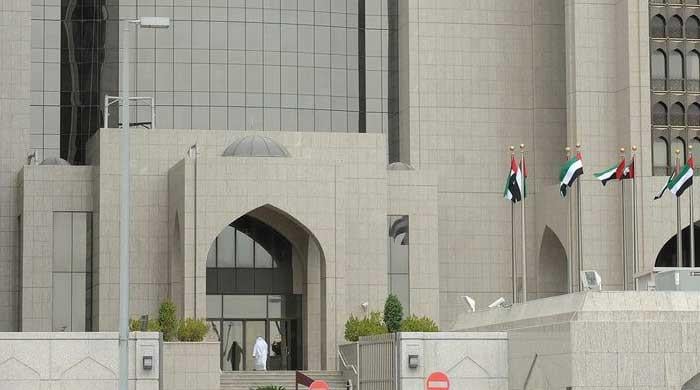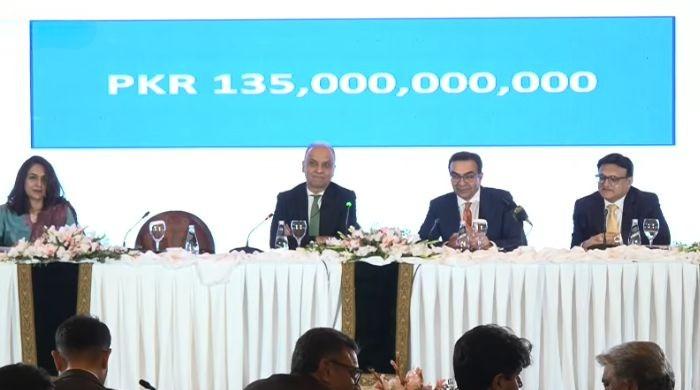Rupee sinks further, falls to new low of Rs180.57
Investors are evaluating economic risks amid political unrest and uncertainty about IMF's next loan tranche
March 18, 2022

- Investors are evaluating economic risks amid political unrest and uncertainty about IMF's next loan tranche.
- Rupee has depreciated by Rs23.03 since July 1, 2021.
- Foreign exchange reserves decrease by 2.35% on a weekly basis.
KARACHI: The Pakistani rupee dropped to a record low of Rs180.57 on Friday as investors evaluate economic risks amid political unrest and uncertainty about next loan tranche by International Monetary Fund (IMF).
According to data by the State Bank of Pakistan (SBP), the local currency depreciated by 0.28% to settle at Rs180.57 against the US dollar in the inter-bank market.
Currency dealers said that investors were seen calculating risks in case the IMF and Pakistani authorities didn’t reach an agreement regarding the next loan tranche.
A foreign exchange trader said that the rupee crossed the key psychological level of 180 against the greenback and it continued to struggle as the investors fear the next IMF tranche may be delayed, which would have consequences for the country’s economy.
“The volatile global commodity prices are also adding downward pressure to the local unit,” he added.
The rupee has maintained a downward trend for the past 10 months. It has lost 18.58% (or Rs28.3) to date, compared to the record high of Rs152.27 recorded in May 2021.
With a fresh decline of 0.28%, the Pakistani rupee has depreciated by 14.61% (or Rs23.03) since the start of the current fiscal year on July 1, 2021, data released by the central bank revealed.
Investors are wary of a delay in the completion of the seventh review of the IMF’s Extended Fund Facility (EFF) after the IMF raised questions about the merit of the PM Imran Khan’s fuel and electricity subsidy package and tax amnesty for the industrial sector.
The situation also aggravated following the submission of a no-confidence motion by the opposition parties to push the prime minister out of his office.
Analysts believe that the looming economic uncertainty is having its toll on the currency. There are concerns over the IMF next tranche, while commodity prices are still high, which would maintain pressure on import bill.
Meanwhile, the foreign exchange reserves held by the central bank decreased 2.35% on a weekly basis.
On March 11, the foreign currency reserves held by the SBP were recorded at $15,831.6 million, down $381 million compared with $16,212.2 million on March 4.
Overall liquid foreign currency reserves held by the country, including net reserves held by banks other than the SBP, stood at $22,283.4 million. Net reserves held by banks amounted to $6,451.8 million.









